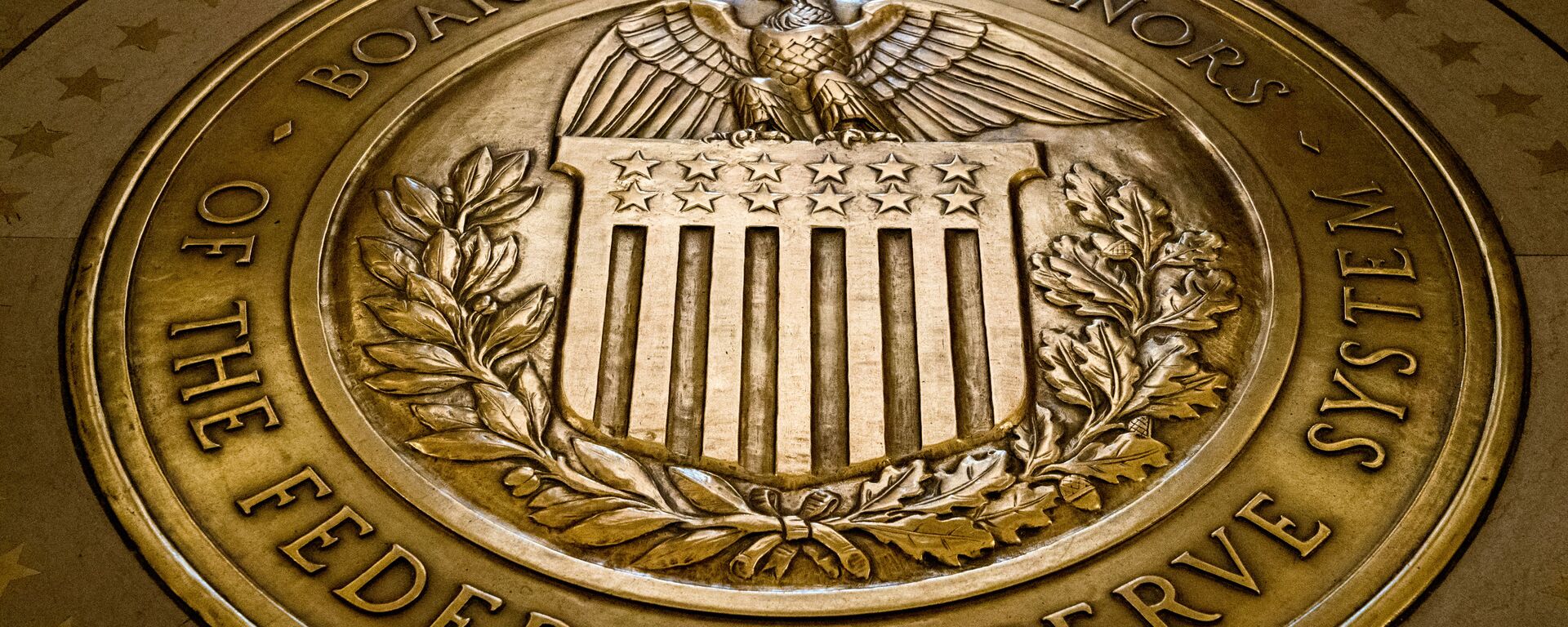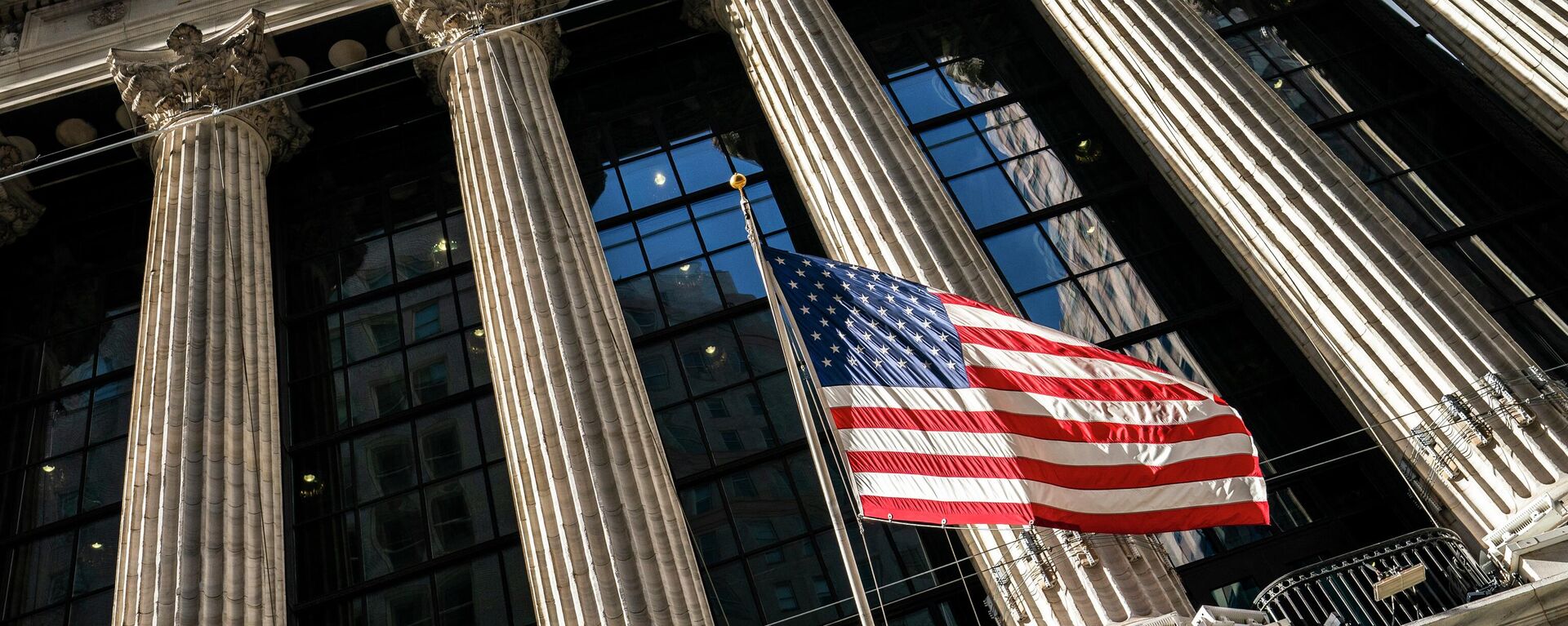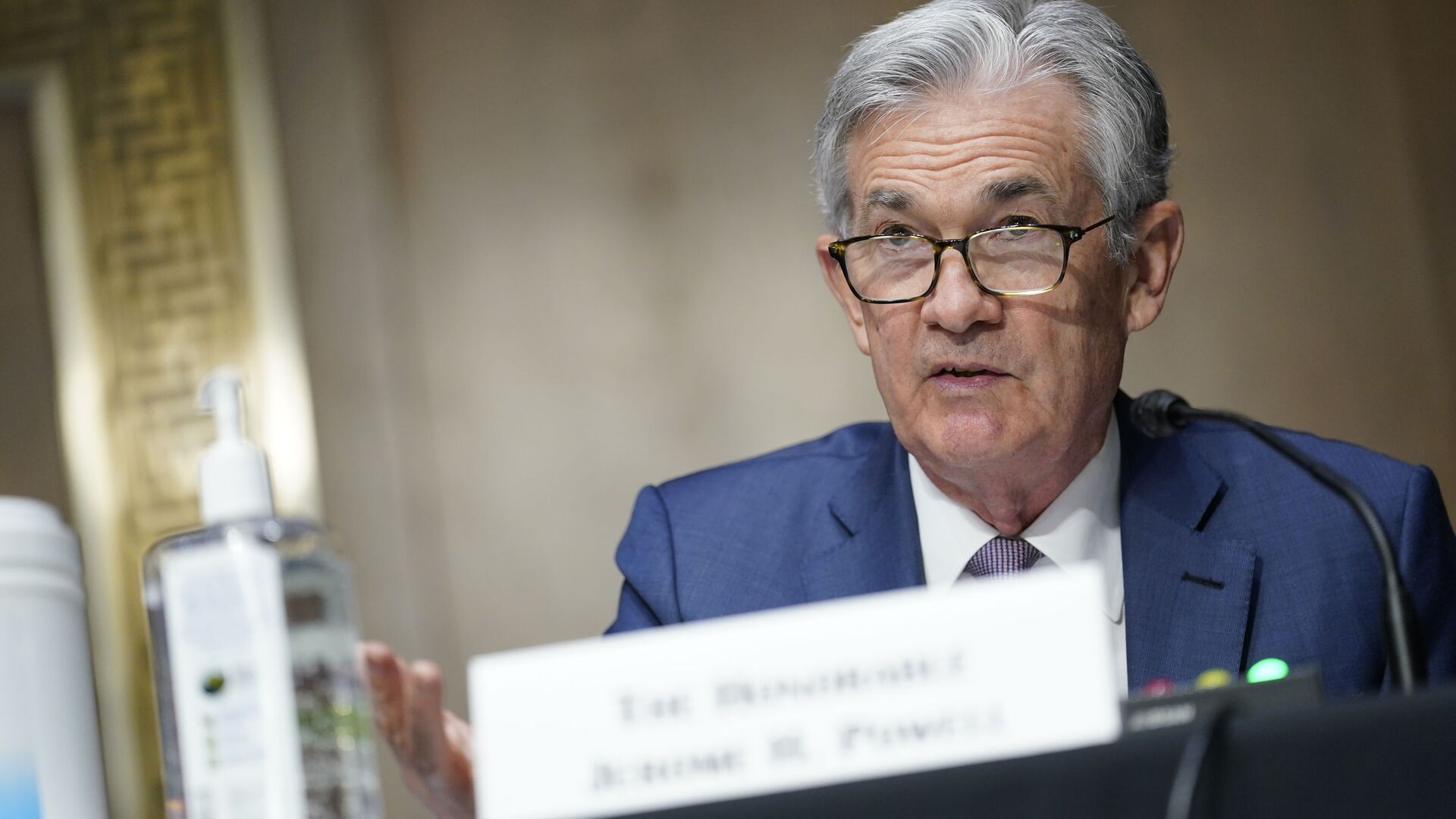https://sputnikglobe.com/20231011/meeting-notes-reveal-us-federal-reserve-sees-one-or-more-rate-hikes-as-necessary-1114114563.html
Meeting Notes Reveal US Federal Reserve Sees ‘One or More’ Rate Hikes as Necessary
Meeting Notes Reveal US Federal Reserve Sees ‘One or More’ Rate Hikes as Necessary
Sputnik International
The Federal Reserve is likely to raise interest rates at least one more time before bringing them back down, which will only come after the central bank feels inflation is returning to the 2% benchmark it expects.
2023-10-11T19:55+0000
2023-10-11T19:55+0000
2023-10-11T19:52+0000
us federal open market committee (fomc)
federal reserve
inflation
interest rate
us treasury
economy
https://cdn1.img.sputnikglobe.com/img/07e5/04/1c/1082754467_0:160:3073:1888_1920x0_80_0_0_dd7317544b085e21c5dbce7ec9444ff5.jpg
“A majority of participants judged that one more increase in the target federal funds rate at a future meeting would likely be appropriate, while some judged it likely that no further increases would be warranted,” reads the meeting minutes, which were released to the public on Wednesday.That said, the document notes all members of the FOMC, which sets the effective federal funds rate or interest rate, agreed that they should “proceed carefully” with any future moves, which must be based on new data rather than a pre-programmed path.The Fed most recently raised interest rates in July, setting them at 5.25%, their highest in 22 years, ending a march upward that began in early 2022 in an effort to clamp down on record-high inflation. Even though aggregate inflation has slightly increased in the months since, the Fed has declined to raise rates again, including at the September meeting for which the minutes were released.Still, Federal Reserve Chair Jerome Powell noted at the time that there was “a long way to go” before inflation returned to 2% and that it was likely there would be another 25-point rate hike by the end of the year.Fears that inflation could continue to rise were again sparked on Wednesday after the US Bureau of Labor Statistics (BLS) released its latest producer price index (PPI) report, which reported the costs for finished goods paid by producers increased more than expected. Like the past few months, the aggregate numbers were given a powerful boost by higher fuel prices.Still, investors are betting against the Fed raising rates again, with the CME Fedwatch Tool giving a one-in-four chance of another rate hike before January 2024.Part of the reason may also be market trends, such as the 10-year US Treasury bond hitting a 16-year high, a consequence of a flood of bonds hitting the market after the Treasury was forced to deplete its cash in order to avoid a default during the debt ceiling crisis earlier this year.
https://sputnikglobe.com/20231002/fed-official-eyeing-higher-us-rates-as-inflation-remains-too-high-ahead-of-november-meet-1113867509.html
https://sputnikglobe.com/20230923/inflation-still-too-high-for-average-american-to-bear--federal-reserve-officials-1113596705.html
Sputnik International
feedback@sputniknews.com
+74956456601
MIA „Rossiya Segodnya“
2023
News
en_EN
Sputnik International
feedback@sputniknews.com
+74956456601
MIA „Rossiya Segodnya“
Sputnik International
feedback@sputniknews.com
+74956456601
MIA „Rossiya Segodnya“
federal reserve; interest rates; fomc; 10-year treasury bond
federal reserve; interest rates; fomc; 10-year treasury bond
Meeting Notes Reveal US Federal Reserve Sees ‘One or More’ Rate Hikes as Necessary
The Federal Reserve is likely to raise interest rates at least one more time before bringing them back down, which will only come after the central bank feels inflation is returning to the 2% benchmark it expects, according to notes from the Open Market Committee’s September meeting.
“A majority of participants judged that one more increase in the target federal funds rate at a future meeting would likely be appropriate, while some judged it likely that no further increases would be warranted,” reads the
meeting minutes, which were released to the public on Wednesday.
That said, the document notes all members of the FOMC, which sets the effective federal funds rate or interest rate, agreed that they should “proceed carefully” with any future moves, which must be based on new data rather than a pre-programmed path.

2 October 2023, 20:21 GMT
The minutes also noted the entire committee agreed “that policy should remain restrictive for some time until the Committee is confident that inflation is moving down sustainably toward its objective.”
The Fed most recently raised interest rates in July, setting them at 5.25%, their highest in 22 years, ending a march upward that began in early 2022 in an effort to clamp down on record-high inflation. Even though aggregate inflation has slightly increased in the months since, the Fed has
declined to raise rates again, including at the September meeting for which the minutes were released.
Still, Federal Reserve Chair Jerome Powell noted at the time that there was “a long way to go” before inflation returned to 2% and that it was likely there would be another 25-point rate hike by the end of the year.
Fears that inflation could continue to rise were again sparked on Wednesday after the US Bureau of Labor Statistics (BLS) released its latest
producer price index (PPI) report, which reported the costs for finished goods paid by producers increased more than expected. Like the past few months, the aggregate numbers were given a powerful boost by higher fuel prices.

23 September 2023, 00:07 GMT
Still, investors are betting against the Fed raising rates again, with the
CME Fedwatch Tool giving a one-in-four chance of another rate hike before January 2024.
“If financial conditions are tightening independent of expectations for monetary policy” then “that will reduce economic activity,” Michael Feroli, the chief US economist at JP Morgan, the nation’s largest bank, told US media. “Things change, you change your forecast.”
Part of the reason may also be market trends, such as the 10-year US Treasury bond
hitting a 16-year high, a consequence of a flood of bonds hitting the market after the Treasury was forced to deplete its cash in order to avoid a default during the debt ceiling crisis earlier this year.




